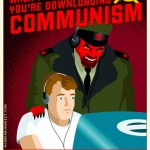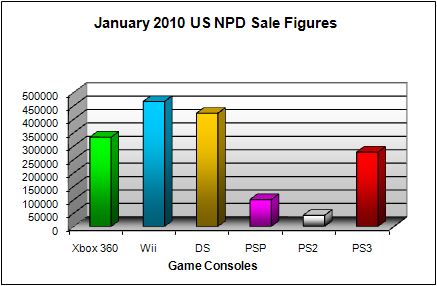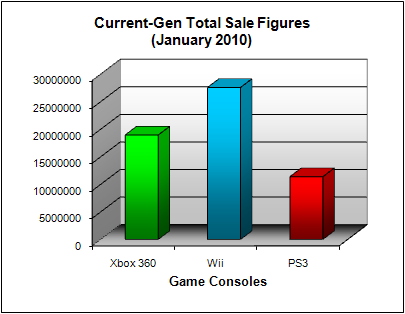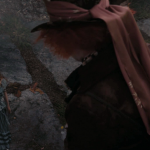Having had more time to think about Ubisoft’s excessive DRM, I wanted to write a detailed analysis that provides a balanced look at both sides of the DRM debate, and perhaps try to find in the middle-ground, a solution that can prevent piracy (more importantly, make game companies feel more secure when it comes to preventing piracy), but also won’t affect the legitimate gamers. But I was feeling a bit lazy so I didn’t write it. However, I did promise that I would do a PS3 MKV playback guide, using mkv2vob, and that’s what I did do. It’s a useful guide and I’ve already used it twice this week to get downloaded MKV files (legal of course) to play on my PS3. I’m also planning another PS3 related guide to be up within the next two to three weeks. As for news, there’s a good sprinkling of it, so let’s get to it.

Let’s start with copyright news. After losing a landmark case, the AFACT (aka the Australian MPAA) came out of shock and decided as a first measure to reduce the amount of cost they have to pay, claiming that for the parts of the case that they won, they shouldn’t have to pay. But that was just the appetizer. The main course was filled right on deadline day, and the AFACT will seek to appeal the Australian Federal court’s decision.
None of this is really of any surprise, but the AFACT, backed by Hollywood, has practically unlimited funds at their disposal thanks to Hollywood studios’ record breaking profits (no thanks to “massive” piracy), and they were never going to let such a decision stand without challenge. Lose here, and they will have a tough time getting their beloved “three-strikes” system to roll out – I mean, if the ISP is not responsible for authorising piracy, then why should they bare the burden of monitoring and cutting off suspected pirates, and leave the likes of the AFACT with nothing left to do other than receiving the benefits of this arrangement? And also considering the fact that “massive piracy” may be partially caused by the lack of innovation (and maybe even the deliberate attempt to kill off innovation – see Blockbuster Australia news below), the AFACT have no right to ask iiNet to do anything without at least coming up with the cash to do it.
So it’s judge lottery, and if the iiNet can roll a hard six and get another tech savvy judge, then the appeal will fail. If not, then anything could happen.
To another important court decision, a Hamburg court has ordered file sharing website Rapidshare to clean up its act and remove digital books that have been uploaded and shared illegally, and also to prevent future offences from occurring somehow. With all the focus on BitTorrent, it’s easy to forget that straight HTTP piracy still occurs, and websites like Rapidshare, who host the content rather than just link to a torrent file, do often have a large repository of pirated files. There’s also Usenet, which is another popular source for piracy. The solution that Rapidshare may have to put in would be some kind of file scanning and filtering services, to block suspected copyrighted content from being uploaded. This would be very much hit and miss, with a high false detection rate, and I wonder if it is possible to bypass it through clever file naming (ie. use random characters, as opposed to a descriptive name) and encryption – this would make files harder to search for, but if there’s another website that links to and organises these files, then they don’t need to be easily found through searching.
And going to another court case, this time in Norway, but unlike the other cases, even the verdict in this case seems to be a big secret. The case involves the upload of a movie and a lawfirm’s insistence on an ISP to give out subscriber details based on an IP address they obtained. A judge has issued a verdict, but whatever the decision, which remains a secret, it is being appealed by someone. In any case, the IP address may not even belong to the first uploaders of the movie, rather, it might just be a secondary uploader. It’s always harder to find the original uploaders, who usually go by a scene/group name and can be illusive to track. While secondary uploaders are much easier to find and prosecute. One might argue that the reason all these lawsuits have been relatively unsuccessful in stopping piracy is because they’re not really going after the major players, only the minor and easier to get targets, such as a secondary uploader, or your single mother and student downloaders. Even going after the bigger torrent websites may not be effective, since these are easy to set up and you’re still not getting to the source of the pirated content. For those who have watched The Wire, there are some parallels with the War on Drugs and the War on Downloads. Going after downloaders seems to be the equivalent of doing street-level rips, buy-busts, while bringing down torrent websites is just like bringing down a corner – another one pops up the next day (or the same one, with a different group running it). Going after secondary uploaders is then like going after the mid level operators, a little bit more effective, but still not getting anywhere near the source. Or maybe they just need to set up a digital version of Hamsterdam.
And we might just have some sympathy for pro copyright groups if they didn’t come up with ridiculous things to justify their little war. The latest is the IIPA, the umbrella group for the likes of the RIAA, MPAA and BSA, saying that open source leads to communism (which gives me yet another opportunity to bring out *that* made up poster again). The IIPA is attacking governments that promote the use of free open source software, saying that all this free stuff makes people forget to pay for things and therefore leads to the downfall of capitalism and eventually democracy. Or something. And their lobbying has seen Canada become an enemy of capitalism, to be joined by the likes of India (world’s largest democractic country) and perhaps soon, the UK as well. Having had a look at the software section here at Digital Digest, just over half of the software we list are freeware or open source, so I guess Digital Digest is an enemy of capitalism as well. Looks like our secret has been discovered, comrades.
And then we had RIAA’s CEO likening the recent hack of Google by Chinese hackers to people downloading free music, and using this to attack Google for not being friendly enough to the RIAA’s demands. The logic behind this is that Google being hacked and some of their source code being stolen is IP theft, just like music downloads, and that the Chinese government’s reluctance to crackdown on “patriotic hackers” is the same as other government’s reluctance to introduce three-strikes, and this allows the RIAA to point at Google and do the infamous The Simpson’s Nelson “Ha Ha”. I’m sure I don’t need to point out the large chasm of difference between the fairly passive act of downloading music that’s been made available illegally online (by someone else), and the fairly non passive act of hacking Google. And is the Chinese government’s actions, mainly motivated by political and military aims, really the same as other government’s concerns over three-strikes being unconstitutional? In the RIAA’s eyes, anything can be justified, it seems.
Some of the governments that don’t like three-strikes still want to maintain their self governing rights as to not be forced to adopt it as part of a global copyright treaty. And it is this concern that has the EU coming out against having a three-strikes provision as part of the ACTA agreement, that’s been negotiated mostly in secret. Did the RIAA and MPAA really think they can force something as controversial as this on every single country in the world and not face some objections? Well, they can just classify those who don’t go along as enemies of capitalism, I suppose.
One government that’s not so against the idea of three-strikes is the UK government, which is still debating what to add to their Digital Economy Bill, the bill that the big players in the digital economy (Google, Yahoo, Facebook, eBay) hates. And the side effect of having a three strikes system is that it places burden on ISPs and Internet service operators to monitor their customers, and this will include the likes of libraries and cafes that offer public Internet services, like free Wi-Fi hotspots. But monitoring these connections will be almost impossible, due to the high turnover of customers, not to mention privacy concerns, and it could forces these services to be shut down, which I’m sure will do wonders for the digital and non digital economy. All this while UK consumers are more confused than ever over existing copyright laws that don’t really make much sense to them as well. It is illegal to rip CDs to your iPod or portable music player, despite everyone doing it and in most cases having no negative effect for copyright holders. Of course, if people were prevented from ripping their CDs and forced to buy a new digital copy of all their songs, then yes, copyright holders would get more money, but that’s like thinking about the money lost currently if each song could be made to cost $10,000 to buy. Why not just make consumers buy the song every time they want to hear it, for $100,000 each time, that could even make more money. Your product is only worth as much as people are willing to pay for it, never forget.

In HD news, Adobe has released another beta version of Flash Player version 10.1. This long awaited release, with no official final release date, will add GPU assisted decoding for the playback of Flash H.264 content, which is very much needed at the moment due to the increasing popularity of 720p and 1080p videos, and the fact that even desktop CPUs sometimes struggle with 1080p videos without GPU assist.

Flash Player 10.1 Beta 3 adds Intel GMA 500 acceleration support, enabling netbooks such as this Asus Eee PC 1201HA, to play HD H.264 Flash video without skipping
The new beta adds acceleration support for Intel GMA 500 integrated GPUs, which is important because quite a few Netbooks, CULV laptops and hybrids use this chipset, and with their less than powerful CPUs, GPU assisted decoding in the only way to get HD H.264 to play with any sort of decent framerate.
The other news item, that I referred to earlier before, is about the head of Blockbuster Australia (and the Video Ezy rental chain), Paul Uniack, basically saying that Hollywood studio greed is killing the video download business. We all suspected that may be the case, but it is interesting to see someone in the business confirm it so clearly. Uniack says that studios are not pricing downloads fairly, and that studios are asking for as much as 70% of the revenue for doing nothing other than allowing the sale or rental of the digital format. He also believes that the studio’s arrogance may be their downfall, as it is similar to the attitude of the music labels before “digital downloads and piracy destroyed them”. Blockbusters Australia had an agreement with TiVo to produce downloads, but has since had to pull out due to lack of support from studios. I don’t know if studios are doing this on purpose, that if they’re afraid of opening the digital floodgates, unsure of the eventual outcome. Maybe they’re just greedy or short sighted enough not to be able to see the potential of digital. I believe they will eventually change their minds on this matter, but it might already be too late for them by then.
Not much in gaming news, so skipping the section yet again this week.
See you next week.












